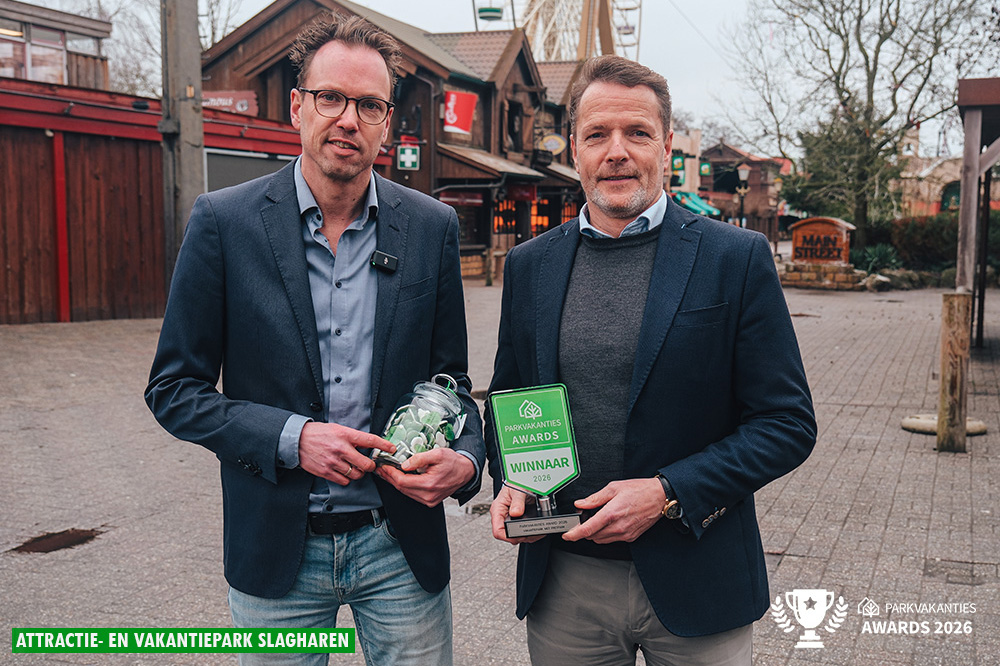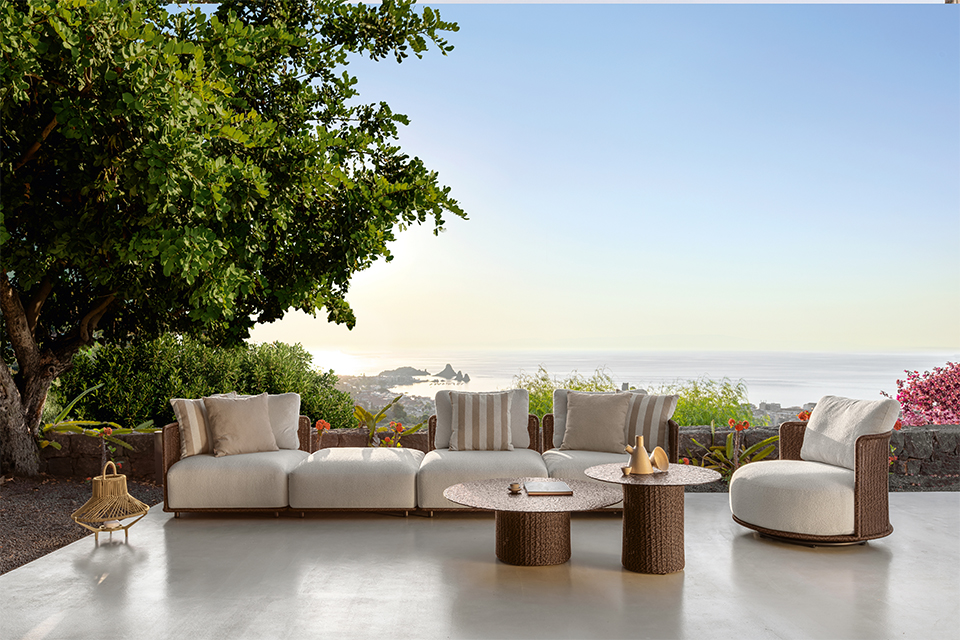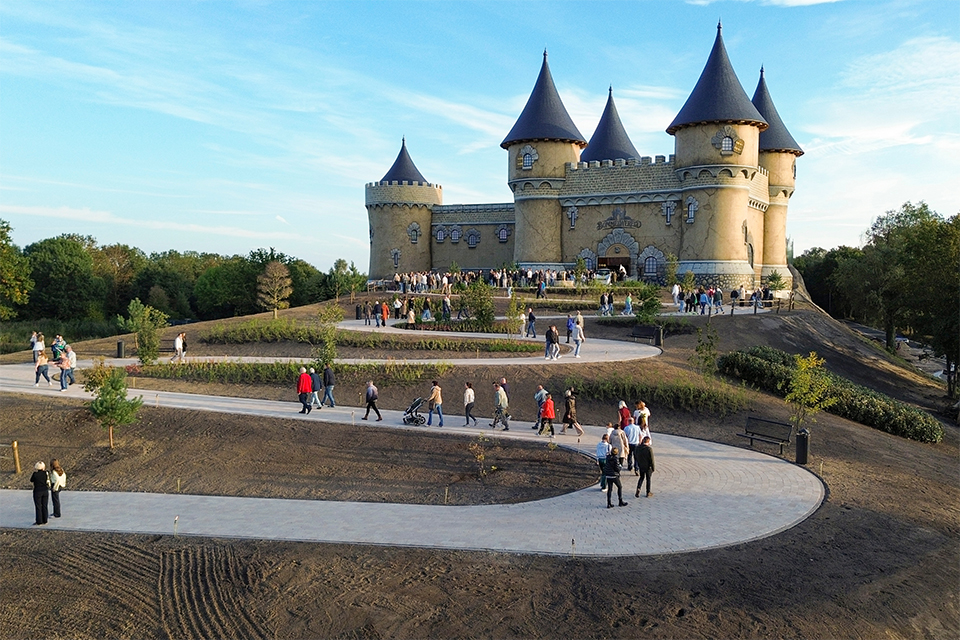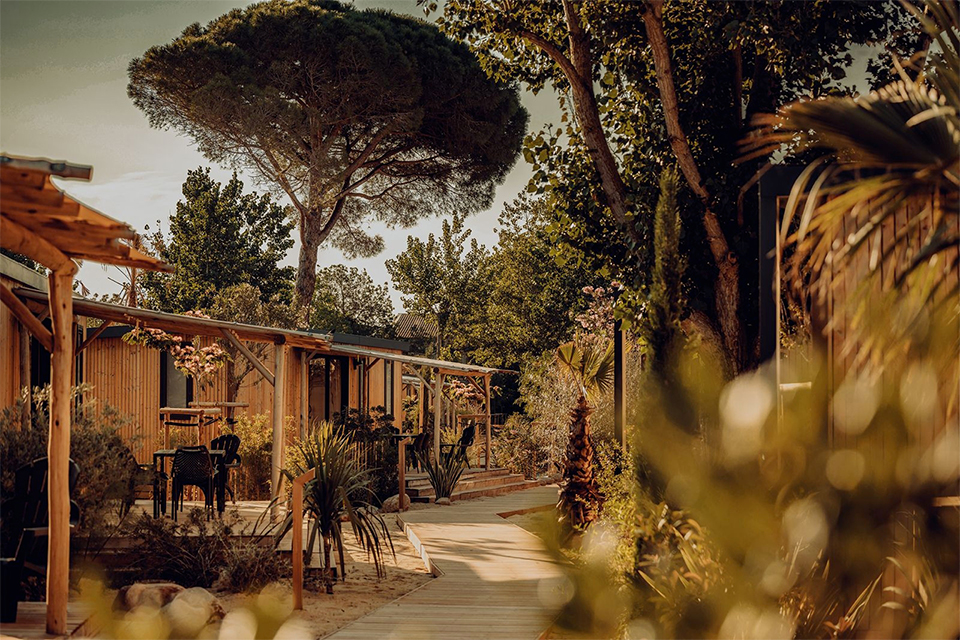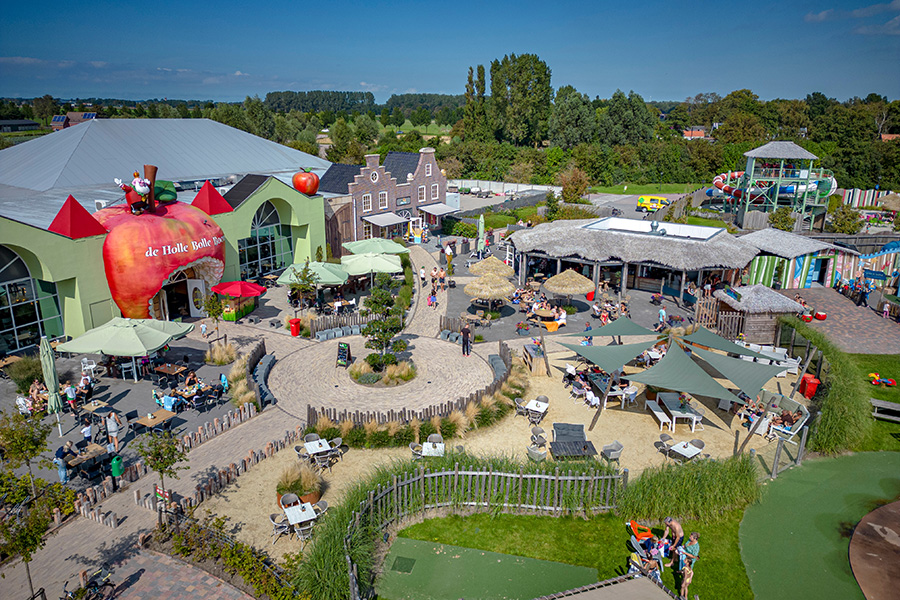
Outdoor hotel business
What the hotel world can learn from holiday park De Bongerd
On a sunny morning, Hotelvak walks the grounds of holiday park De Bongerd in Tuitjenhorn, North Holland, with park manager Tom Clarijs. We pause at an apple-shaped slide, walk past the theatre and end at the restaurant the Klokhuis. What immediately stands out: this is neither a traditional campsite, nor a standard holiday park. "It feels more like a small holiday village," says Clarijs, while in the background a group of children come running enthusiastically out of the Hollow Bolle Plons. "But one where hotel expectations meet camping freedom." Welcome to what the French so aptly call hotellerie de plein air - an outdoor hotel. And what happens here is surprisingly instructive for hoteliers.
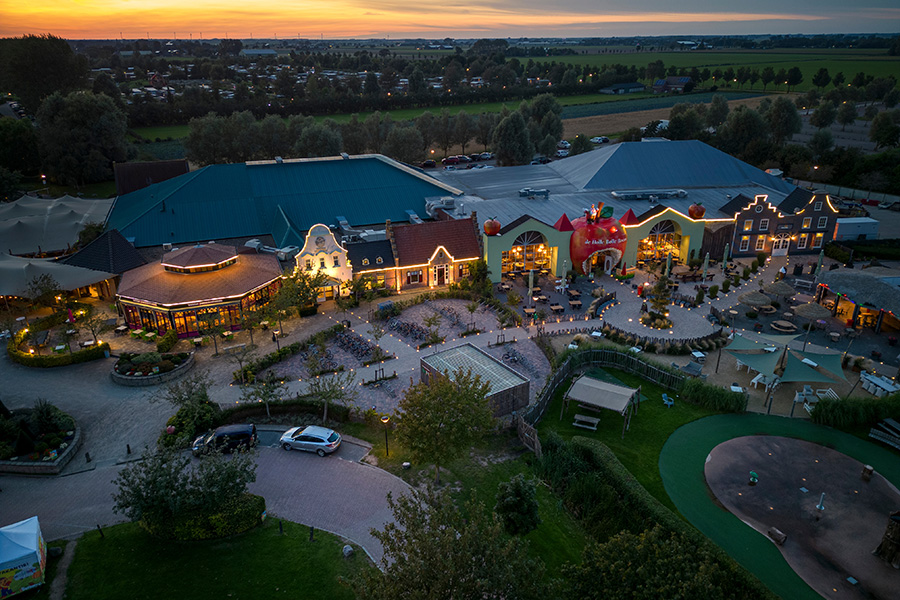
During the talk, Clarijs outlines the story of the park. Fifty years ago, Wilma Vriend's parents started a small campsite next to their apple orchard. The first sanitary facilities came from an old nursing home. Then Peter and Wilma moved on and built it into a household name in the leisure industry. The site has since grown to 36 hectares, with: 400 accommodation units, 136 camping pitches and 200 annual pitches.
And on peak days, more than 3,500 guests. Yet the original charm has been retained. "You can see the apple everywhere: in our slides, our logo, the catering. That story is right and felt."
The theming was honed after Peter Vriend visited Disneyland in the US. A concept developer was flown in, the standards committee gave surprisingly quick approval, and since then everything has been part of one big, lived-in story.
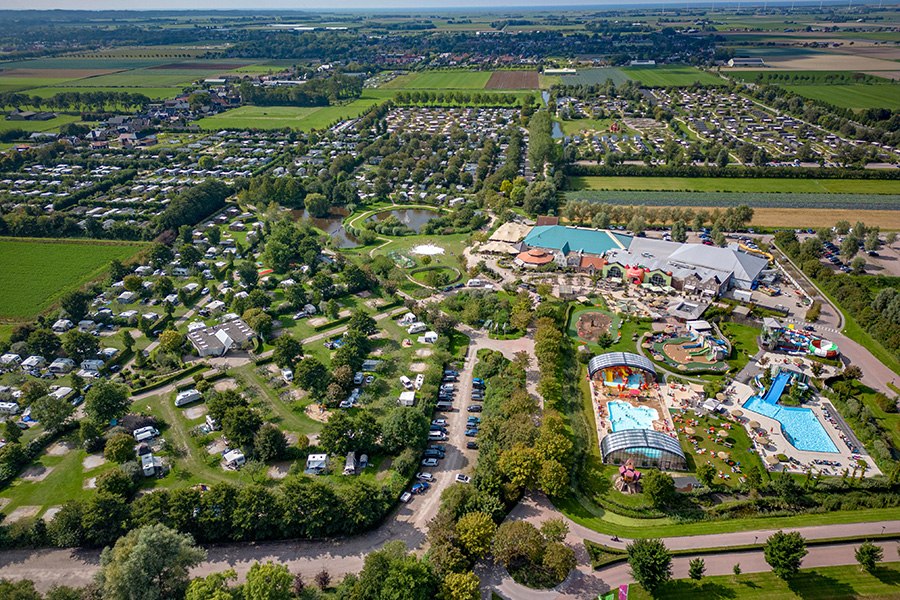
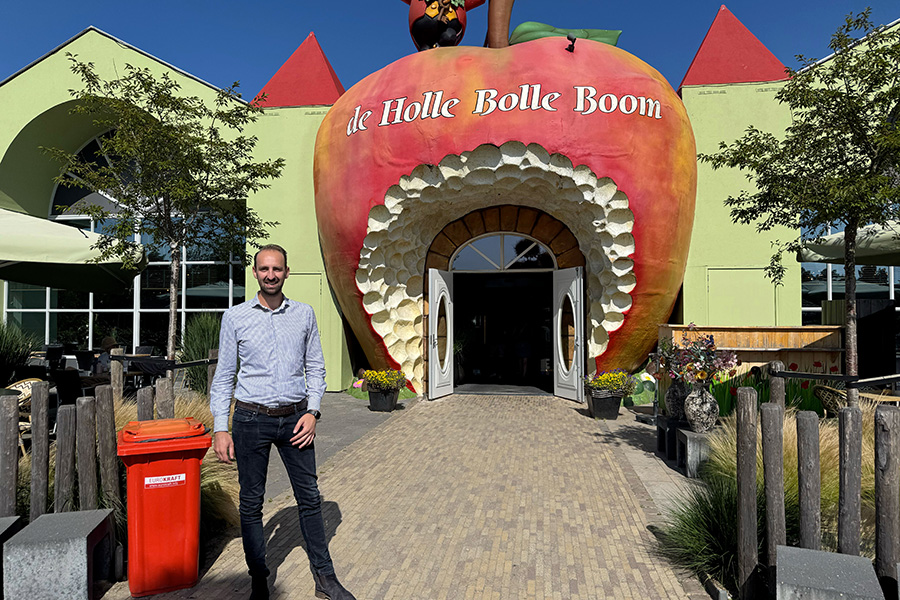
No hotel rooms, but hotel expectations
Although there is no hotel room to be found, guests' expectations are now similar to those of hotel visitors. "Guests want comfort, quality and service; and they get it," Clarijs explains. "But while maintaining their own control. We don't make the bed for you, but the restaurant runs at bistro level, and the atmosphere is right."
What makes the park unique is the flexibility in forms of accommodation. Grandpa and grandma in a luxury cottage, the kids in an island lodge and the rest in the motorhome - all together in one location. "For hotels, there is a real opportunity there," says Clarijs. "Think in experience and connection, not just in rooms."
Atmosphere as a steering tool
What concerns Clarijs most as a manager? Not technology or marketing, but atmosphere. "If a guest goes home with a smile, then I know we are doing it right," he says. That starts with language. Not 'staff', but collaborators. No 'night watchman', but atmosphere manager. New employees get their own onboarding through the Bongerd College, which brings together brand story, behaviour and expectations. Even the word 'should' is on the internal forbidden words list.
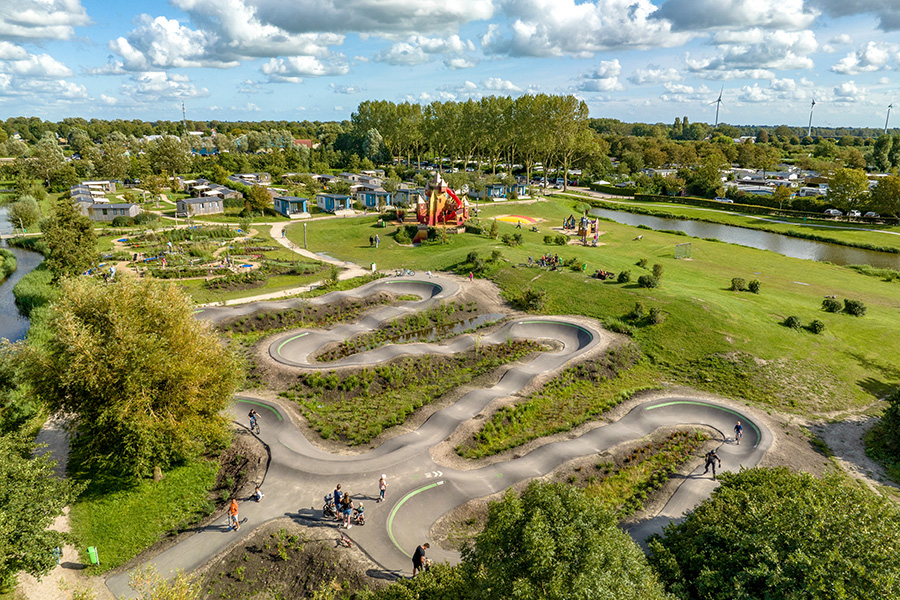
Large scale, tightly organised
In peak season, it employs 150 temporary workers and 50 permanent staff. "A hotel often struggles with peak loads, but we run on that," Clarijs says. "Our processes are worked out in detail, but with room for individuality and hospitality."
That combination of scale and personal approach requires a different HR philosophy. "We steer towards commitment, not hierarchy. If you feel you matter, you radiate that to the guest."
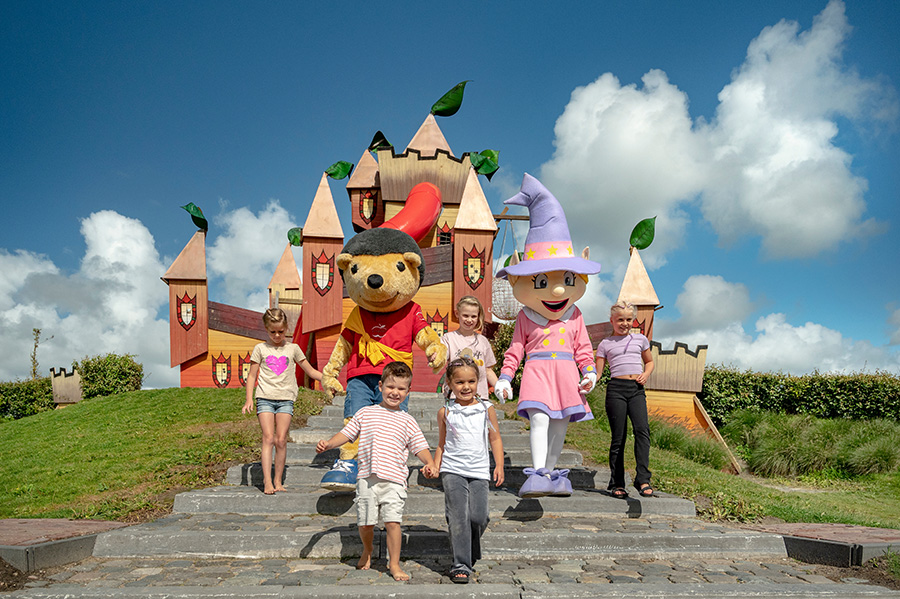
Full without Booking.com
Worth noting: De Bongerd does not work with external booking platforms. All bookings go through its own website or the Capfun system. And it pays off. "We were already full for the summer holidays on 1 January. On our first booking day alone, 200 bookings are already coming in."
Awareness is also growing internationally. Whereas the park previously attracted almost exclusively Dutch guests, 20 per cent of visitors are now German. "And German guests are just as loyal."
Acquisition by Capfun
In April 2019, De Bongerd was acquired by France's Capfun, which owns more than 100 campsites in Europe. Peter and Wilma Vriend remained at the helm, as did Clarijs. "We get the scale and network of a large party, but retain our individuality," he explains. "The takeover gave room to invest further, this resulted in increasing the rental offer from 15 to 400 in four years.
According to Clarijs, Capfun is the perfect match: "They focus on families, experience, quality. Just like us."
What hoteliers can learn from The Bongerd:
- Tell a real story
Themes stemming from history or environment are more credible and distinctive than made-up concepts.
- Organise flexible accommodation
Facilitate multigenerational lodging with variety of accommodations in one location.
- Steer by atmosphere, not just numbers
Atmosphere is both measurable and controllable - and essential for returning guests.
- Invest in direct bookings
A strong site and community of its own make intervention by platforms unnecessary.
- Give your employees identity
Make staff feel like hospitality ambassadors - and be creative about it.
